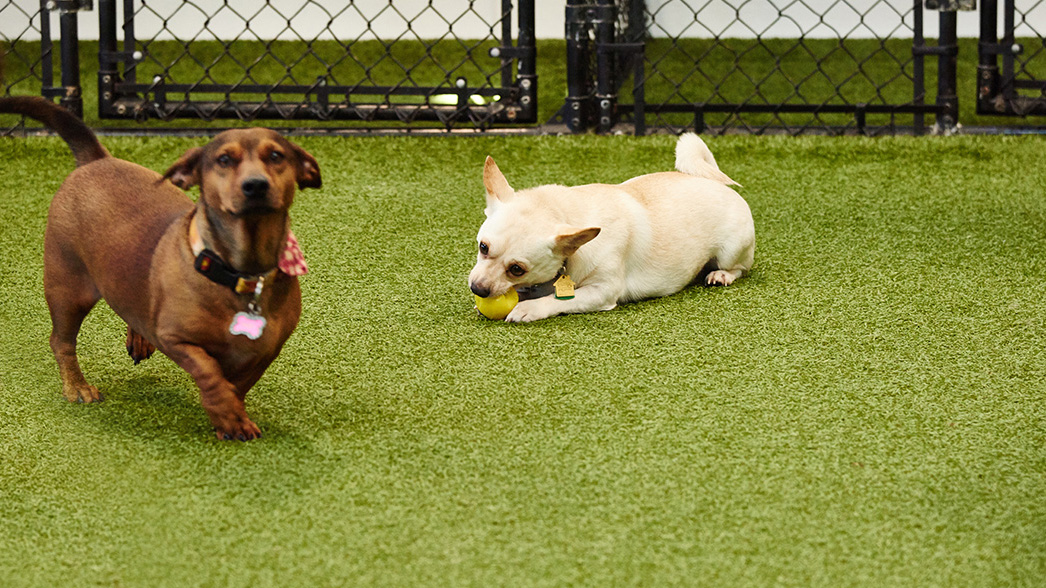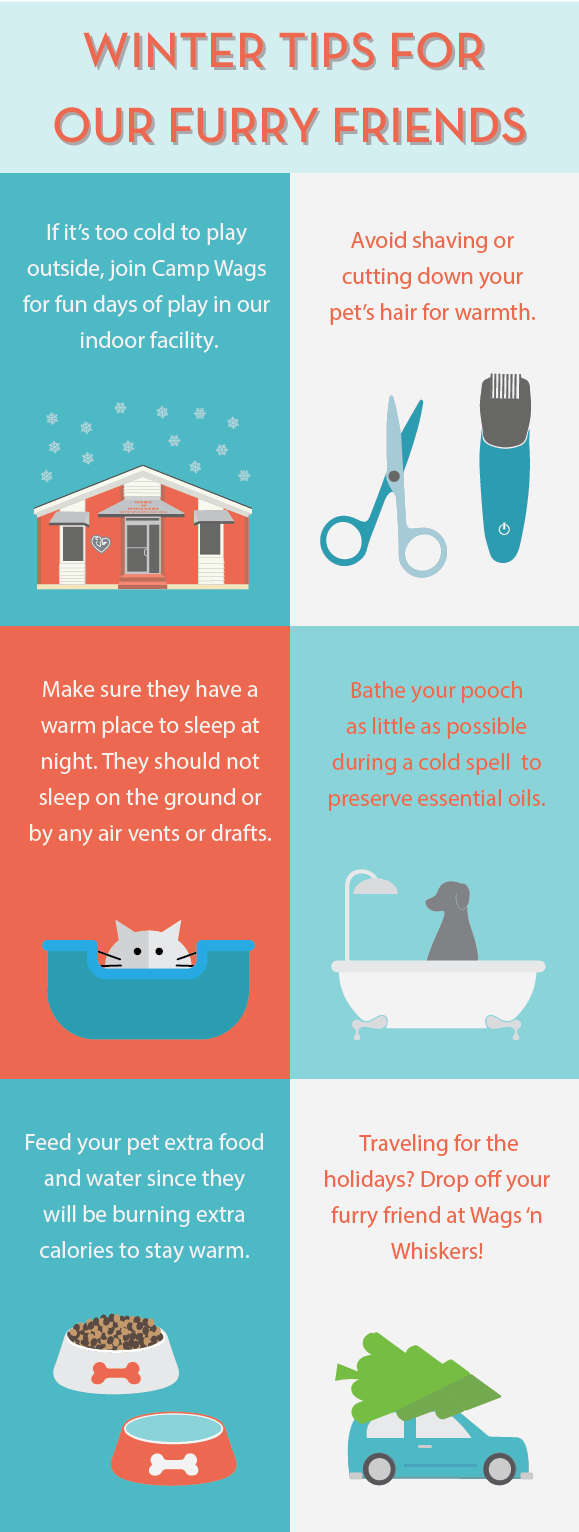
BLOG
Winter Tips for our Furry Friends
Merritt Milam | December 7, 2015
‘Tis the season for chilly weather! With winter slowly creeping up on the South, pet owners should take a few basic precautions into account when caring for their cats and dogs. While we can bundle up in heavy coats, warm gloves and scarves, our furry friends need us to look out for them to stay warm and cozy. Below are the top five wintertime tips to ensure that your pet stays happy and healthy during the upcoming frosty season.
1. During the colder months, avoid shaving or cutting down your pet’s hair. The extra hair will provide natural warmth to your furry friend in the chilly outside air. If you have a long-haired pooch, simply trim his coat to prevent clinging snow or icicles when he is playing outside.
2. Dogs have natural essential oils that help moisturize their skin. In order to preserve these oils and to prevent flaky, dry skin, bathe your dog as little as possible during the colder months. If you absolutely must bathe your pooch frequently, give us a call at 205.902.WAGS (9247) and we can recommend moisturizing shampoos that shouldn’t leave your dog with dry skin.
3. During the winter, pets burn extra energy to help stay warm. Lower temperatures require greater energy consumption in order to maintain body temperature. Feed your pets a little extra food during the colder months to provide the necessary calories.
4. Make sure your dog or cat has a warm, dry place to sleep at night away from air vents and drafts, and off of the floor. Keep in mind that their fur coat does not provide much more warmth than a light jacket would provide us.
5. Always remember that if it’s too cold for you, it’s too cold for your pets. Ideally, cats and dogs should be kept inside during cold weather. It is a common belief that pets are resilient to the cold because of their fur – this is false. Just like people, our pets can become disoriented in the cold and can just as easily suffer from frostbite and hypothermia. Certain breeds of dogs, such as huskies, are bred for colder weather and are more tolerant, however, no dog should ever be left outside of a substantial period of time.


